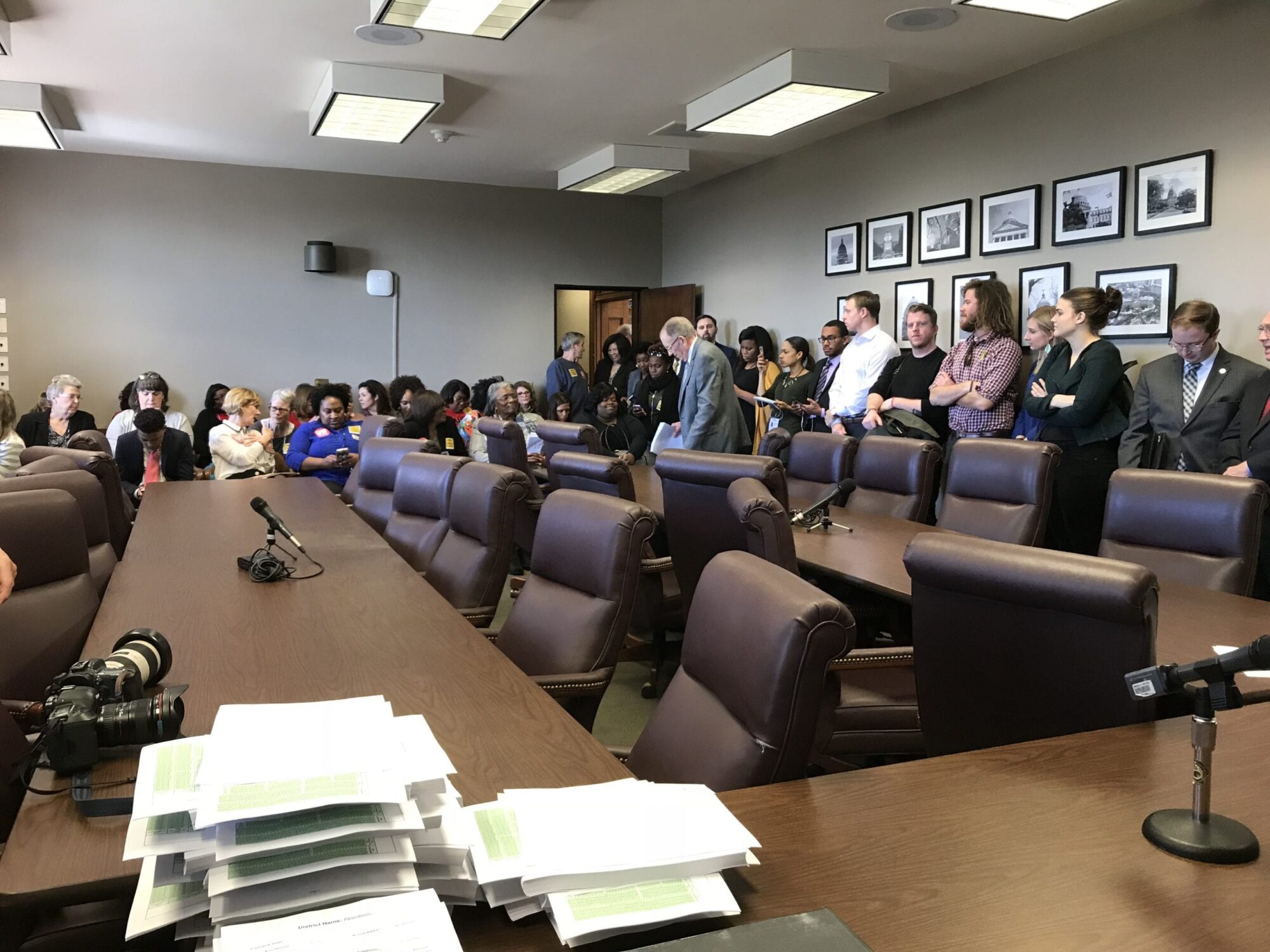
The Senate Education Committee, led by Chairman Sen. Gray Tollison, took up HB 957 today in a packed room on the fourth floor. Questions and debate lasted about an hour as Tollison explained the bill and the student based formula.
In short, the bill would create a new base-per-student funding amount of $4,800. This new dollar amount is based on census poverty data. It would also create a new weighted system for students who have special needs (i.e. gifted, english language learners, low-income students). The formula would increase education funding by $108 million, after fully implemented over the next five years. It also includes a hold harmless for 2019 and 2020.
However, one of the main recommendations to do away with, that is also currently in the MAEP formula, was 27 percent rule, which is left in the new funding formula.
Sen. David Blount voiced serious concern over the lack of discussion over a new funding formula. While the EdBuild recommendation has been online for over a year now, Blount said only two real hearings have taken place to create transparency and understanding on the bill. Another worry he has is over school autonomy to do with those education dollars as they wish.
“Increasing the weight for english language learners for instance has no effect on what schools may or may not do in educating those students, it is simply a way of yielding a number to local superintendents who will decide how to spend that money,” said Blount. He says all the funding formula does is determine the size of the state budget, and give the districts the autonomy to spend that money however they want.
Blount said the idea of adding new weights doesn’t mean lawmakers are increasing service or bettering the experience. He said the only way to make funding predictable is every year in Appropriations.
“You’re going to create an incentive for districts to identify these children as students that would generate more money. That’s not to say they’re going to game the system they just didn’t have a financial reason to classify before, and now they will,” said Blount.
Tollison responded that there will be added financial transparency, including a website created by the Department of Education which will list, down to each school, how money is being spent.
“I think it’s just increased accountability, we want to see how tax dollars are being spent and why we aren’t seeing better results in education. I think that will go a long way,” said Tollison.
Blount believes that this rewrite is more about a political problem between those who want to fully fund MAEP, and those who don’t.
Senator Wiggins chimed in that MAEP was passed and not fully funded even when leadership was under the Democratic party, so, in his opinion maybe that formula just isn’t one that works within the legislature. He said it will be up to this group of lawmakers to ensure a new formula is fully funded this time around.
Wiggins also offered a technical amendment to strike Section 26 that pertains to a law passed in the distribution of funding in Jackson County that was ruled unconstitutional by the Federal Government.
The bill was passed by a voice vote and will now appear before the full Senate for consideration.











